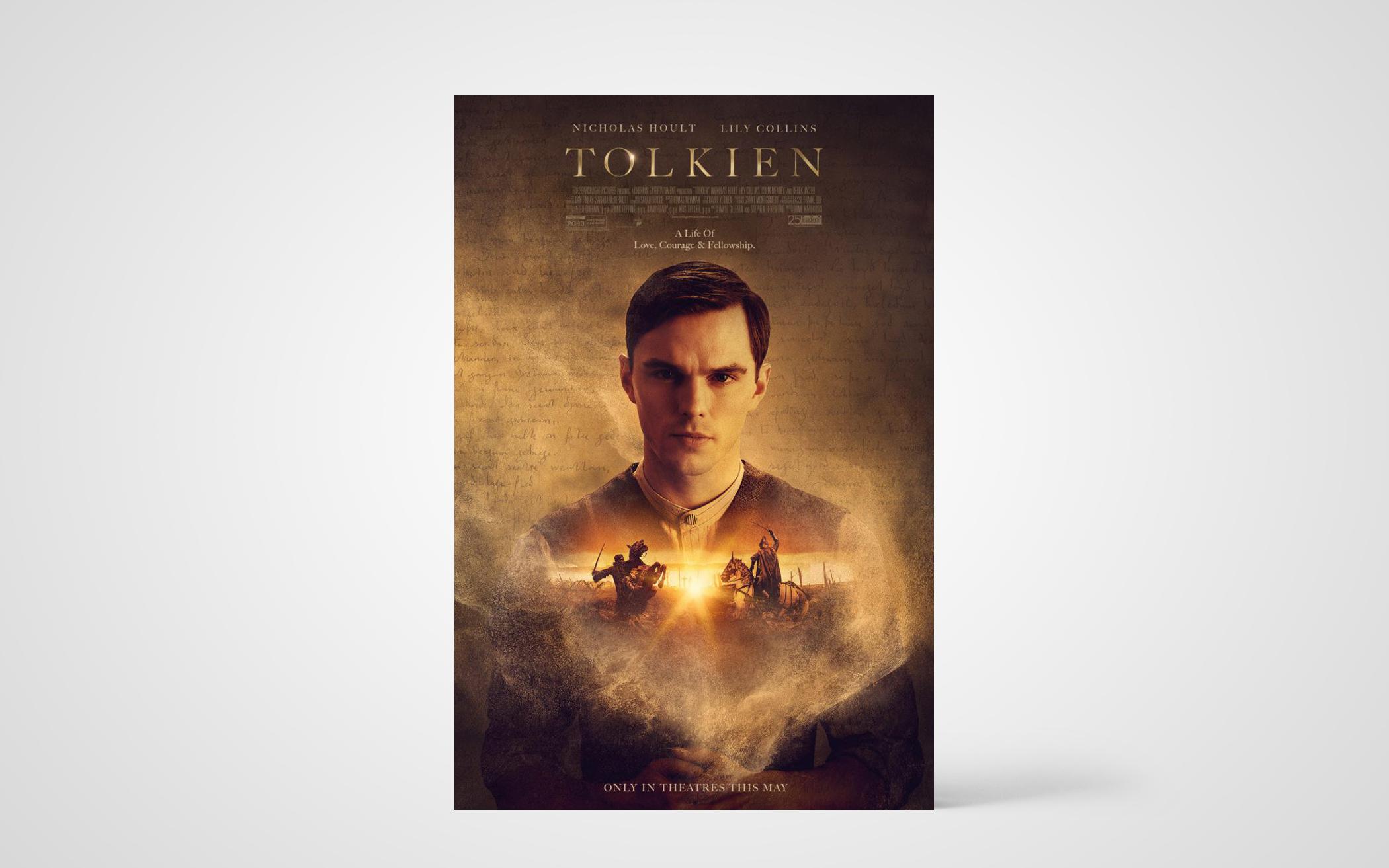Few writers are as fabled and revered as J.R.R. Tolkien, which means this portrait of the author of The Hobbit and The Lord of the Rings can hardly live up to the legend. Fanatics of the books and the Peter Jackson movies may well find this biopic lacking, but for others, like me, who love to learn about the story behind the story, the film satisfies and even delights.
A portrait artist chooses colors and features on which to focus, and director Dome Karukoski chose to focus on three main aspects of Tolkien’s biography.
The first is “Ronald’s” loss-filled upbringing, as a keenly intelligent, sensitive and imaginative son of a dead father and a mother who lovingly imparts in him an adoration of words and mythology. Orphaned by the time he was 12, Tolkien (played tenderly by Nicholas Hoult) is left in the care of a priest, who sends him to live in a boarding house for well-born orphans and to a private school for the sons of the rich and titled. Viewers see how his orphanhood leaves Tolkien floundering for love and driven ever deeper into the world of his mind. We understand how such a lonely boy, when included in a warm circle of lively friends, attaches profound meaning to these friendships. He belongs to this group, to this “fellowship.” Friendship is one of the movie’s core themes, and the film is not subtle in showing how belonging to his friends shaped Tolkien’s future works.
The second facet explored is World War 1, and specifically Tolkien’s fighting in The Battle of the Somme. The depiction of this battle is rightfully gruesome. In one scene, a fellow soldier named Sam (get it, LOTR fans?) lays a wounded Tolkien on a hill of dead bodies rising up from a pond-sized pool of red blood. As he teeters between life and death, Tolkien hallucinates about the dragons and terrifying otherworldly creatures that would one day populate his novels. (Did he really conjure these creatures in a wartime fever?) By the conflict’s end, Tolkien had lost all but one of his closest friends.
Words and language comprise the third focus. Tolkien’s mother taught him to cherish words, and when she died, Tolkien continued on this lingual path, even inventing his own language. As a scholar, he fought to be included in a philology course at Oxford, taught by a revered professor (Derek Jacobi in a sage cameo). Even his romance with future wife Edith (a radiant Lily Collins), a fellow orphan boarder living in the same house, swirls with language love. In a pivotal scene, the two debate whether words are about their meaning or their sound. She says meaning, he says sound. This scene entwines Tolkien’s famous "cellar door" notion, in which "cellar door" is gorgeous to say and hear, apart from its literal meaning. Ultimately, the future author realizes that exquisite and well-chosen words and their connotations blend for the best stories and prose.
Missing almost entirely here is mention of Tolkien’s vibrant Christian faith. His relationship with the priest who raised him must have been spiritually formative, but the film skims it. The Inklings, the famous writer’s group in which Tolkien was a member, are also hauntingly absent (I kept looking for signs of them throughout the film). Both are disappointing omissions.
On the whole, though, I was captivated. This film might not please purists, or even diehard fans of the LOTR trilogy. Critics have said the film konks viewers over the head with blunt connections to Middle Earth, but I needed those konks.
Again, it’s a portrait, and as a devotee of writing and writers, I left feeling enriched and fascinated with Tolkien, his inspirations, and the epic tales he would go on to create. I felt inspired to hold my own writer’s group close, to read The Hobbit for the first time, and say “cellar door” out loud, marveling anew at the beauty of language. (Fox Searchlight)
About the Author
Lorilee Craker, a native of Winnipeg, Man., lives in Grand Rapids, Mich. The author of 15 books, she is the Mixed Media editor of The Banner. Find her on Instagram @thebooksellersdaughter or on her podcast Eat Like a Heroine.

